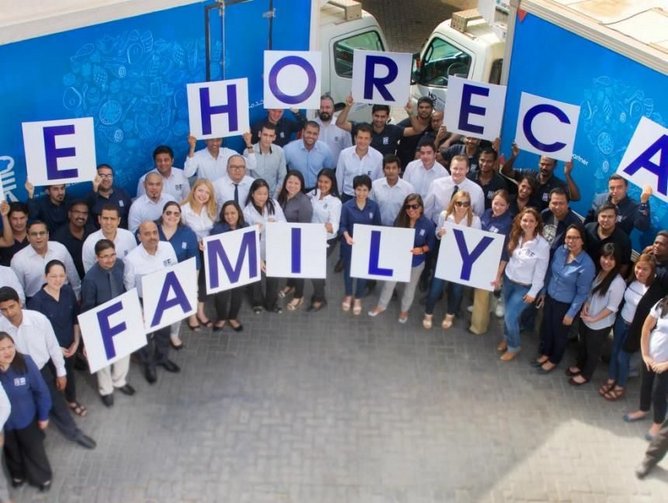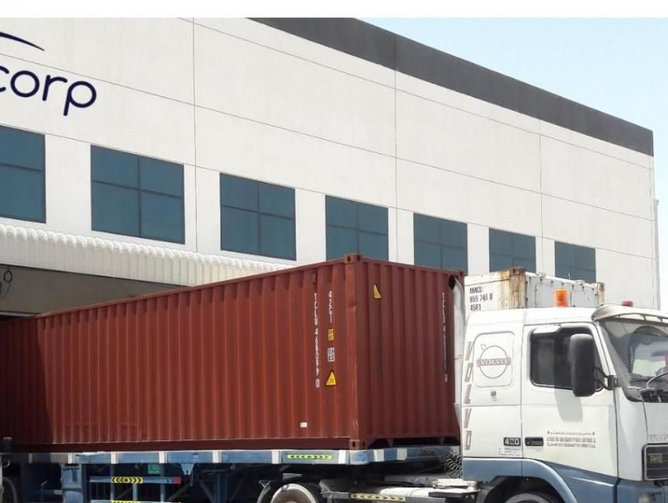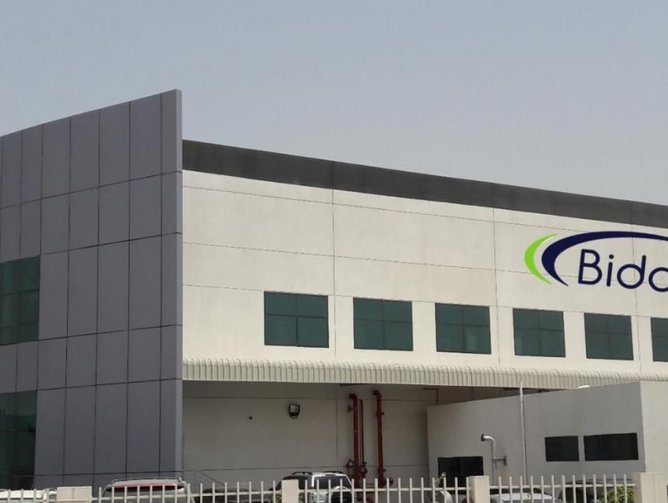Part of the globally-present Bidvest Group, Bidcorp Middle East has risen to become a regional leader in the Gulf for distributing ambient, chilled and frozen food, beverages and non-food products to the foodservice sector including, but not limited to, hotels, restaurants, cafes and catering companies.
In recent years, the company has broadened its coverage while adding a variety of food product lines to its original offering. Furthermore, the company has developed a responsive business model and supply chain that has enabled it to adapt to the ever-changing needs of its customers. We speak to Hisham Aljamil, Bidcorp’s Regional Managing Director, about how the company has achieved this, as well as the operational directives that have enabled it to reach the top of its market segments.
Operations
Bidcorp, through its entities, caters to a range of customers in food service channels including institutional, catering and, to a certain extent, some retail sectors in the Middle East. The company operates in six markets in the Middle East via a number of stand-alone commercial entities. These consist of HORECA Trade and Cherrypik Trading UAE; HORECA Trading Oman; Al Diyafa Company for Catering Services, Saudi Arabia, and HORECA United Services Bahrain.
Through these subsidiaries, Bidcorp is able to manage, market and deliver an assortment of both its own and renowned branded food and beverage products. As standard, it aims for a 24-hour delivery time in all of its markets.
“The market most concentrated on is the Gulf, especially in the UAE, Saudi Arabia, Oman and Bahrain,” Aljamil explains. “In terms of overall human capital, we have around 280 foodservice professionals. In terms of coverage, we have state of the art facilities in UAE (Dubai and Abu Dhabi), Oman, Bahrain and the three major regions in Saudi Arabia. In terms of overall business, turnover is close to $100 million.”
Market strategy
But operating successfully in the region isn’t simply a case of owning and operating subsidiaries. “The challenge is that our markets are at different levels of maturity – internally and externally; internally as a business and externally as a market. So, for example, our food service business in Saudi Arabia is much more mature than the business we have in Bahrain. The former is eight years old and the latter only two years old.
While it is certainly challenging to operate with such variations in both market and business development, it is by no means impossible and the opportunities to grow are there for the taking, with the right strategy. “We're trying to replicate best practices across all the markets,” Aljamil explains. And this is no small feat.
“Best practice, of course, comes after learning - and sometimes failing - in a given market. It’s about when to replicate, when to adapt, or when to scale back, be it operations, marketing, systems, IT or logistics.”
Perhaps the most pertinent example has been a best practice developed through practical application in one market that has had profound consequences for its other territories. “One best practice we just rolled out was for ordering online,” Aljamil says. “It took us two years to roll it out, in the UAE initially - we invested a lot of money but learned so much. Now we're replicating this for our Saudi operations.”
Talent management
Looking to grow businesses in the Gulf also requires strict adherence to a number of often changing rules regarding employment practices – notably the Saudiisation measures of the KSA Government. “With some practices there are many ways to do differently but here there is only one way to do it and that’s according to the law. We therefore hire Saudis, train them, develop them and invest in them,” says Al Jamil.
“This requires that we choose talented people who are also the right people. We are also required to be in line with the quotas they allow for us - each market is slightly different.” Once Bidcorp has achieved the right mix of local and expat talent, employees enjoy a variety of different training programmes, as well as a number of perks.
Aljamil says: “We train them on soft skills and on technical skills. We implement succession planning programmes. We have encouraging and attractive remuneration packages when it comes to both lump sums and benefits.
Long-term growth
For Aljamil and his teams across the company, replicating successful processes will always be cemented by further growth and expansion. Looking to the future, he sees a number of exciting possibilities on the horizon in terms of both improvements to its current business and in completely fresh directions. In both aspects of this strategy, working closely with partners is essential.
“If you ask me today where would you see the business in the next five years, I would tell you that our number one priority is to make sure we have a presence in all the markets in the Gulf,” he explains. “So five years from now, we should be expanding into a minimum of two to three additional markets and the reason for that is because suppliers and customers are becoming more and more regional.”
Supporting this long term strategy is a large-scale integration - of business systems, people, new brands and customers. “When we look at a brand in a category, we don't say we want this for the UAE, rather that we want this for the region. System-wise, we say can we locate that system in another market if we address all the barriers to entry to those markets.”
Having the business sense and daring to recognize its best performing processes and scale them regionally, Bidcorp’s Middle East operations are set to deliver value for both customers and the business as a whole for years to come. With a rigorously practical mind-set, the company is sure to continue its reputation as a reliable and effective food service pioneer.





